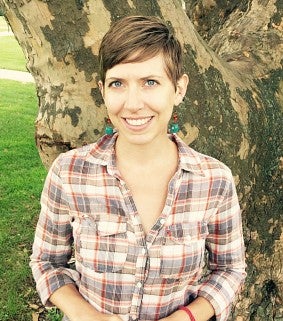
April 22, 2024 - 10:00 a.m.
Department of Sociology Associate Professor Claire Herbert has joined alongside more than 50 other social scientists throughout the US to urge the US Supreme Court to not allow governments to criminalize camping on public property.
On April 22, the US Supreme Court will hear oral arguments for the case City of Grants Pass v. Johnson—whether camping on public property constitutes “cruel and unusual punishment as prohibited by the Eighth Amendment. The case, which has an Oregon city as its subject, will impact the rights of people experiencing homelessness.

If the court rules in favor of Grants Pass, cities across the US will have the right to punish people for sleeping outside even when unhoused people “literally have nowhere else to go,” said Herbert, one of 10 social scientists who wrote the amicus brief.
The case is monumental concerning the status of unhoused people across the US. The root of the case is focused on the alleged criminalization of homelessness specifically if a city has the right to enforce laws that criminalize camping in public when there is no other available shelter.
Herbert's work centers on housing and homelessness. Her research in Lane County in Oregon explores how people without housing shelter themselves and how these practices interact with existing laws and regulatory enforcement.
Many cities across the country are struggling with rising rates of unsheltered homelessness, creating frustration for policymakers and both housed and unhoused citizens. “It can feel like there is no end in sight,” she said.
The trend of penalizing unhoused people stems from various stakeholders—including business leaders, residents and government officials—who want a concrete tool to address a problem that doesn’t have a straightforward solution and resources, Herbert said.
“It's misdirected to think that just because we give police officers the ability to write tickets or jail people for sleeping outside, that it will address a widespread housing crisis and the slew of social problems that follow,” Herbert said.
Research has proven that criminalization “does nothing to solve homelessness,” Herbert said. She says that establishing more affordable housing, working to prevent people from losing their current housing, creating more low-barrier shelters and investing in crisis response teams such as the Eugene-based CAHOOTS, are more beneficial routes than opting for criminalization.
“I think this case is an extremely important one,” Herbert said. “I wanted to do whatever I can do to help make sure that people without housing are not penalized for sleeping outside when they have nowhere else to go.”
— By Bailey Meyers, College of Arts and Sciences

